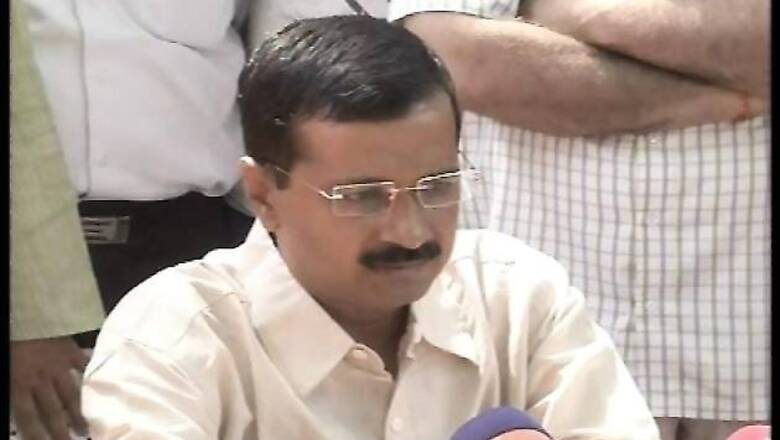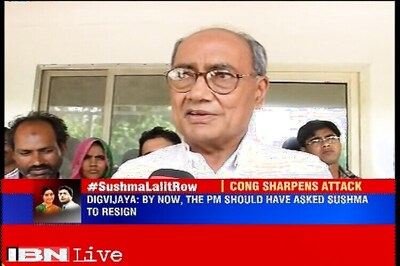
views
As AAP supremo, Arivnd Kejriwal ends his sojourn in Bengaluru and returns to Delhi, a range of challenges linked to the party and government await his attention. The internal convulsions within AAP and they way they are dealt with will be keenly watched. From the time of its formation, AAP attempted to project itself as an alternative to mainstream politics/ political parties. Developments in the last few months have raised questions whether the AAP is a mere alternative within mainstream politics, facing the same aberrations and challenges.
Internal dissent and intra-party democracy has invariably been frowned upon in political parties in India. Where AAP rose on the political horizon, many optimists thought it would be refreshingly different. Its initial moves and approach convinced many that here was a party with a distinctly people-centric approach`. Murmurs about the penchant of its leadership to be impatient with alternative perspectives and voices of disagreement did their rounds but remained largely muted. The spectacular performance of the party in December 2013 in the Delhi elections clearly brought it to the centre stage. Its short 49 day government evoked strong yet mixed responses. Its sudden resignation was frowned upon by many and the BJP victory in the 2014 Lok Sabha elections was seen by many as the beginning of the end of parties like the AAP. There was a huge debate on whether AAP did the right thing by attempting to spread its political canvas across the country rather than confining itself to Delhi. The internal debates within the party also saw sections aligning with either the `Delhi focus` or `All India presence` approaches.
If the current spate of audio tapes that have been released are to be believed, the `party with a difference` attempted to form a government in the State of Delhi, soon after the Lok Sabha polls, using means and tactics that were more or less the `mainstream practice` in Indian politics. Thus the question, was AAP emerging as an `alternative to mainstream politics` or an `alternative in mainstream politics`? A linked development was the rumblings within the party on the nature of the decision making process and the space for alternative voices and perspectives.
The Delhi election results seemed to have dramatically altered equations. The historic sweep was projected as an endorsement of the party leadership. Within the party, it was seen by many as a moment to consolidate the position, presence and pre-eminent status of its leader. The victor of course can do no wrong! The victor has the right to fortify and assert his presence! One remembers the manner in which the MP's of the Janata Party took a solemn oath in Rajghat in 1977 and soon self destructed! More recently, one of the first moves of Deve Gowda on assuming Prime Ministership was to eject his arch rival Ramakrishna Hedge from the party. The AAP story seems similar. It is of course, much more depressing as the party had projected itself as representing `the winds of change` so desperately dreamt of by many Indian voters.
As Kejriwal reaches Delhi, he would have a formidable agenda to deal with. The cynic of course would argue that all the developments within the AAP in the last few weeks could not have happened without his tacit or even direct blessings. If that were to be true, that his return to Delhi, only provides the `formal` moment of `direct` involvement in his party affairs as the National Convener! AAP today is at an important crossroads and has a unique opportunity. Would it approach its internal contradictions in a spirit of accommodation and transparency and give credence to the claim that it is an alternative to mainstream politics/parties? Or would it want to assert and fortify the position of its leadership and snuff out all voices that differ from the line that the leadership prefers to endorse? At this critical stage of its journey, the AAP would need to decide the path it would like to consciously tread. The developments of the next few weeks would be critical to define and decide whether AAP is a party that is different!
(Dr. Sandeep Shastri is a keen student of Indian politics, Dr Shastri is the Pro Vice Chancellor of Jain University)


















Comments
0 comment